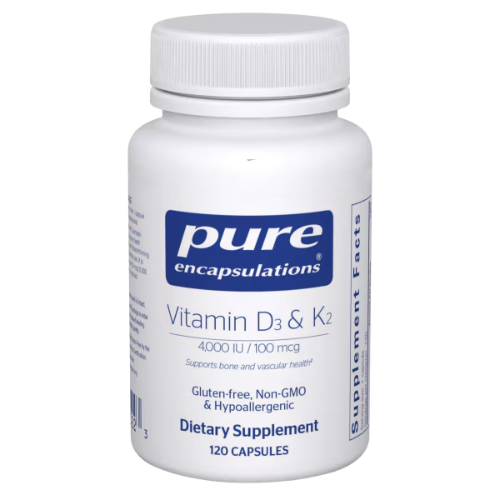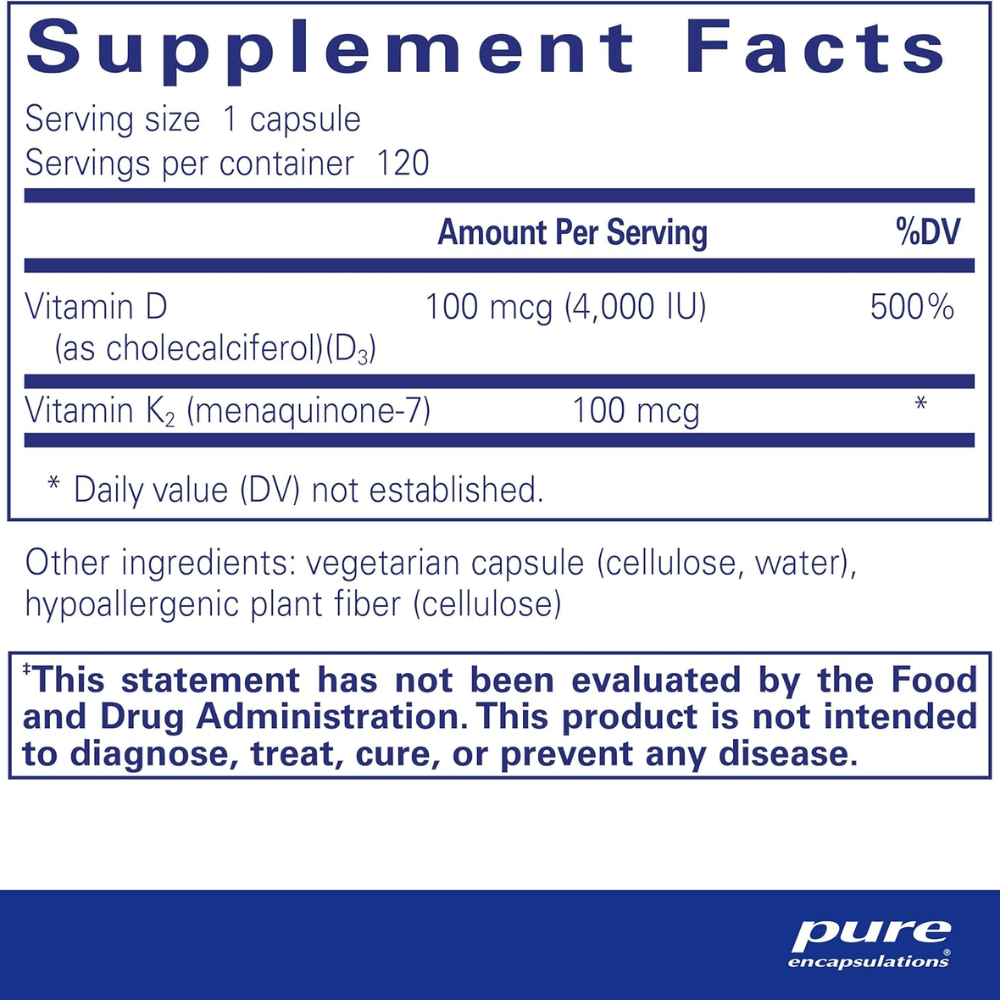This site is protected by hCaptcha and the hCaptcha Privacy Policy and Terms of Service apply.
You’ve probably heard about Vitamin D by now, especially how important it is for your immune system, but did you know the “sunshine vitamin” is also helpful for many other things? Vitamin D plays an important role in thyroid hormone production, and sluggish thyroid is very common, as are suboptimal Vitamin D levels. If you live above the 37th parallel, are cooped up indoors most of the year, or have a darker skin tone, there’s a good chance you might need more of this.
The optimal range is between 50-80 ng/ml, and if you struggle with autoimmunity, you’ll want yours at the higher end of the range. Vitamin D can also help elevate your mood (hello winter blues) and can help strengthen your bones, but you'll want to pair it with K2 to help keep calcium in the right place.
- Promote healthy calcium utilization to maintain bone health‡
- Supports vascular tissue to support healthy arterial calcium balance and vascular elasticity‡
- Supports immune function with vitamin D3‡
- Provides vitamin D3 and vitamin K2 in one convenient capsule
- 100 mcg of biologically active all-trans vitamin K2 (MK-7) per capsule
- Made with hypoallergenic ingredients
Verifiable Science
Vitamin K2 (menaquinone-7) is a fat-soluble nutrient with an important role in maintaining arterial calcium balance and vascular elasticity.1-12 In a systematic review involving five studies, higher intakes of vitamin K2 were associated with cardiovascular health.10 In an observational study involving 564 postmenopausal women, higher intake of vitamin K2 was associated with calcium balance in the vascular tissue.8 One of the primary functions of vitamin K2 is to support the carboxylation of matrix Gla-protein (MGP), a key protein involved in calcium balance.11 Accordingly, several studies indicate that Vitamin K2 also supports proper utilization of calcium in bone. Clinical research indicates that obtaining adequate amounts helps to maintain bone health.1-6 Vitamin K2 and vitamin D3 both participate in the regulation of osteocalcin, a biomarker of bone formation.1,13‡
References
- Gropper SAS, Smith JL, Groff JL. Advanced Nutrition and Human Metabolism. 5th Ed. Chapter 10, pp. 412-414. Wadsworth/Cengage Learning, Australia. c.2009.
- El Borolossy R, El-Farsy MS. Eur J Clin Nutr. 2022 Jun;76(6):848-854.
- Qiu C, Zheng H, Tao H, et al. Mol Cell Biochem. 2017 Sep;433(1-2):149-159.
- Yamaguchi M, Sugimoto E, Hachiya S. Mol Cell Biochem. 2001 Jul;223(1-2):131-7.
- Zhang Y, Liu Z, Duan L, et al. Calcif Tissue Int. 2020 May;106(5):476-485.
- Knapen MH, Drummen NE, Smit E, et al. Osteoporos Int. 2013 Sep;24(9):2499-507.
- Knapen MH, Braam LA, Drummen NE, et al. Thromb Haemost. 2015 May;113(5):1135-44.
- Beulens JW, Bots ML, Atsma F, et al. Atherosclerosis. 2009 Apr;203(2):489-93.
- Mansour AG, Hariri E, Daaboul Y, et al. J Am Soc Hypertens. 2017 Sep;11(9):589-597.
- Rees K, Guraewal S, Wong YL, et al. Maturitas. 2010 Oct;67(2):121-8.
- Dalmeijer GW, van der Schouw YT, Magdeleyns E. Atherosclerosis. 2012 Dec;225(2):397-402.
- Vermeer C and Vik H. Vascul Dis Ther. 2020;5: doi: 10.15761/VDT.1000179.
- Gigante A, Brugè F, Cecconi S, et al. J Tissue Eng Regen Med. 2015 Jun;9(6):691-701.


